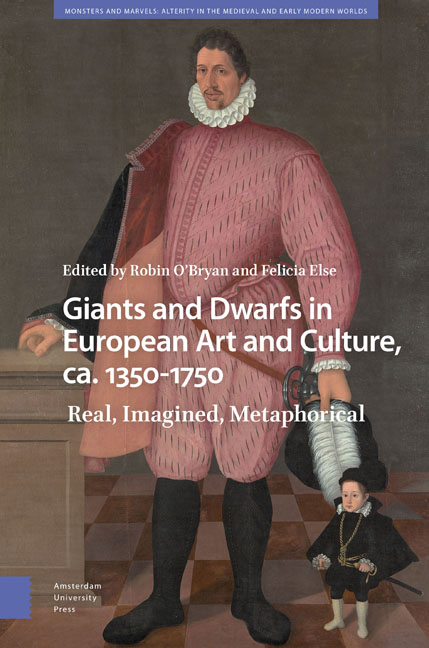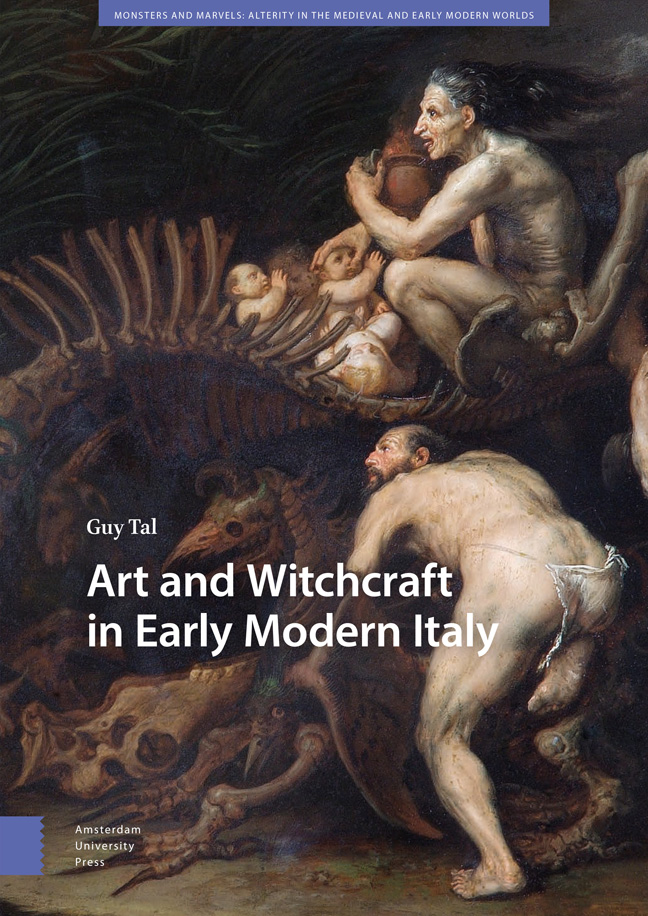2 results in Monsters and Marvels. Alterity in the Medieval and Early Modern Worlds

Giants and Dwarfs in European Art and Culture, c. 1350-1750
- Real, Imagined, Metaphorical
-
- Published by:
- Amsterdam University Press
- Published online:
- 13 April 2024
- Print publication:
- 16 March 2024

Art and Witchcraft in Early Modern Italy
-
- Published by:
- Amsterdam University Press
- Published online:
- 22 February 2024
- Print publication:
- 30 November 2023

